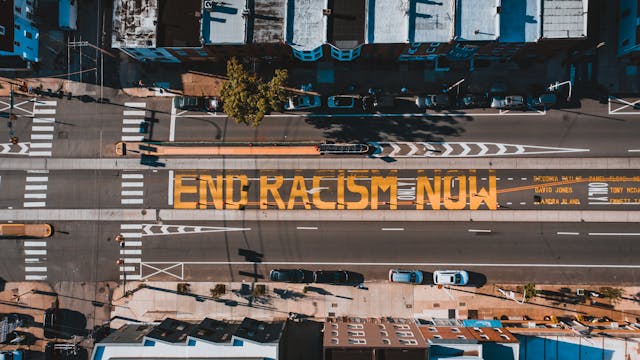What is racism?
Racism encompasses more than just individual prejudice; it operates within systems of power and oppression, affecting various aspects of life. While overt acts of racism may be less common in contemporary society, racism persists in subtler forms, embedded in institutions and cultural norms. It’s crucial to understand racism beyond individual actions to recognise its pervasive influence.
Racial bias, on the other hand, refers to prejudiced attitudes or discriminatory behaviours directed at individuals or groups based on race or ethnicity. This bias perpetuates inequality and injustice by influencing decision-making processes in areas such as employment, education, and law enforcement. It leads to systemic discrimination and unequal treatment, hindering social progress and cohesion.
Both racism and racial bias contribute to disparities in opportunities, access to resources, and treatment within society. They undermine the principles of fairness and equality, reinforcing social divisions and tensions. Recognising and addressing these biases is essential for building a more inclusive and equitable world.
What is anti-racism?
Anti-racism is an active endeavour that targets racism across individual, institutional, and structural dimensions, aiming to challenge and reshape policies, behaviours, and beliefs that perpetuate racial discrimination. While not a novel concept, the Black Lives Matter movement has underscored the urgency of anti-racism efforts.
Systemic racism infiltrates various societal realms, from education and justice systems to government and healthcare, often escaping notice by those who benefit from it. Mere claims of being “not racist” overlook unconscious biases and fail to address institutional factors upholding racial inequality.
Research reveals that individuals who consider themselves non-racist may still harbour implicit biases against marginalised groups. Author Ibram X. Kendi stresses in “How to Be an Antiracist” that harbouring negative attitudes toward specific racial or ethnic groups contradicts genuine anti-racism. Subtle, ingrained forms of racism perpetuate discrimination, necessitating deep self-reflection to challenge and dismantle. Recognising and actively combating racism is pivotal for advancing toward a more equitable society.
Anti-racism extends beyond rhetoric, requiring tangible efforts to dismantle systemic racism and promote racial equity. It involves acknowledging personal privileges, confronting both individual and systemic racial discrimination, and actively working to change personal biases. Unlike merely being non-racist, which implies passive neutrality, anti-racism demands active engagement and conscious efforts to effect meaningful change. It entails creating policies,
practices, and procedures that promote racial equity, reflecting a commitment to action rather than mere sentiment.


